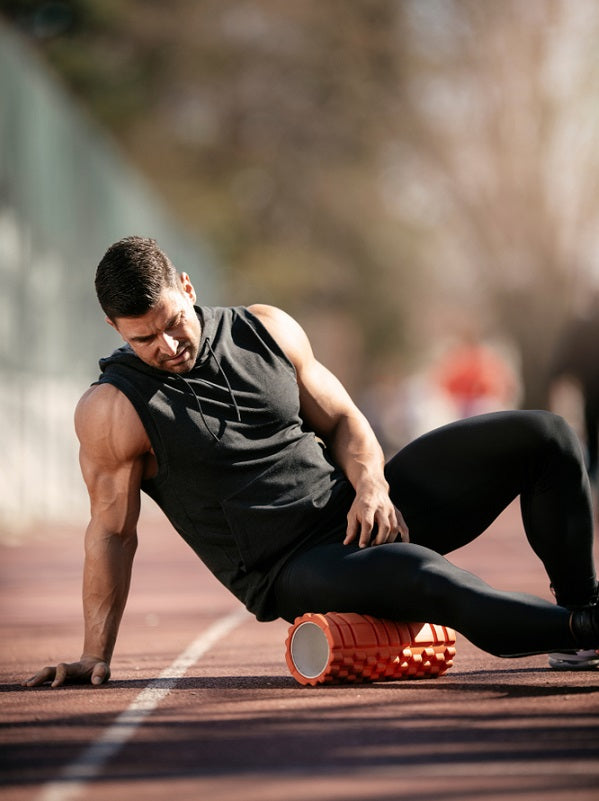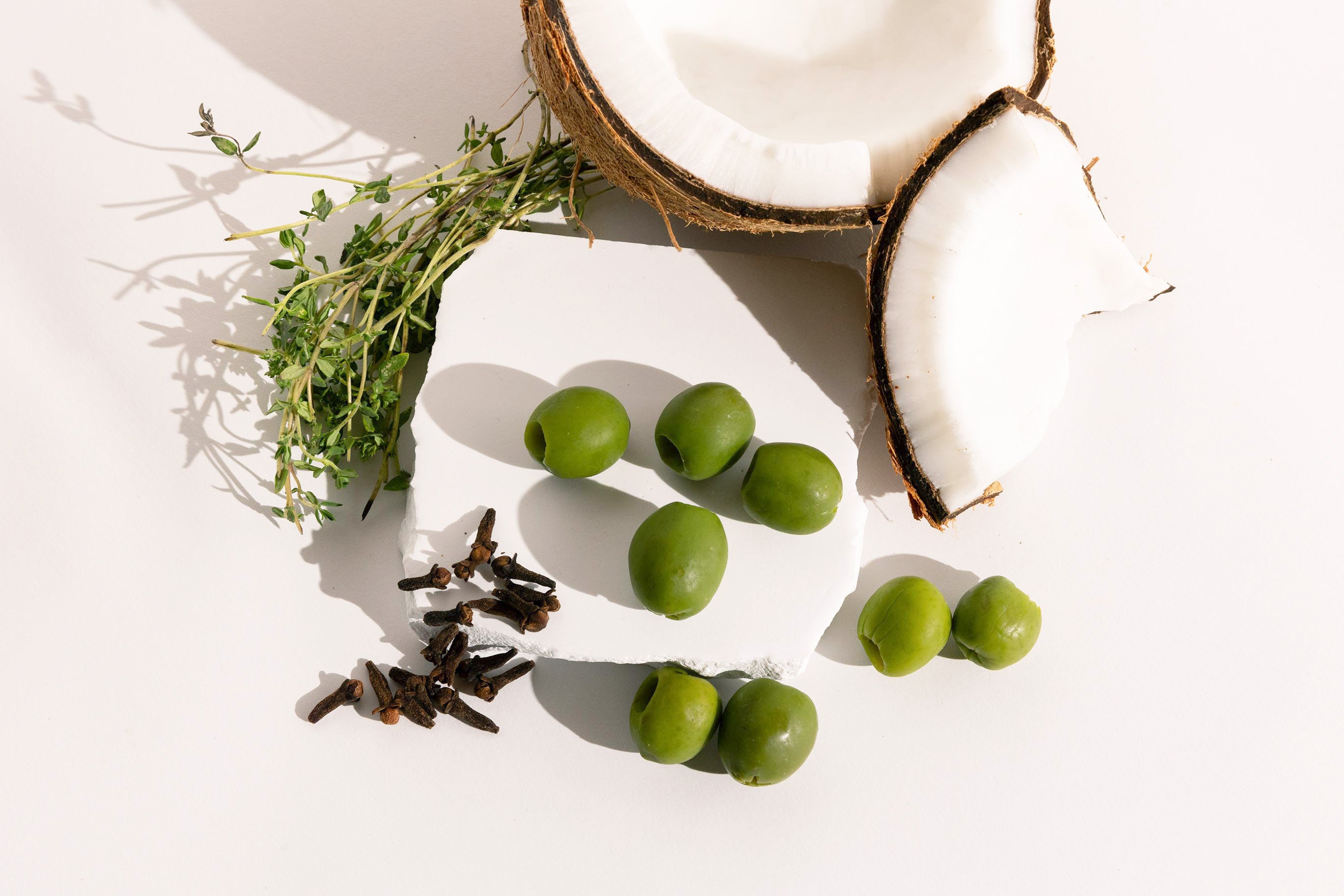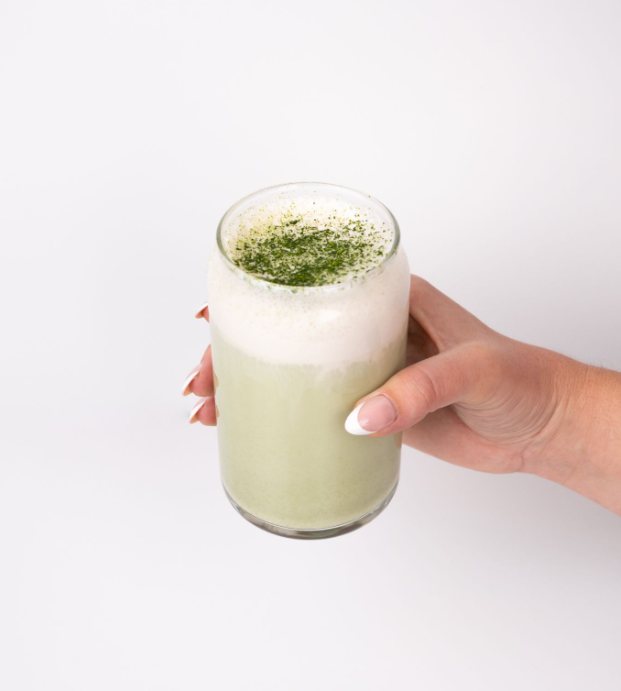
Exercise makes your body stronger, faster, leaner, and healthier. But how exactly does that happen?
Let’s use lifting weights as an example. You curl your arm while holding a dumbbell for a set number of reps. When you do this, tiny tears form in the muscle tissue. As your muscles recover, they repair those tears, leaving behind stronger tissue and muscle growth.
If you’re like most athletes and gym-goers, you want muscle recovery to occur as quickly as possible so that you can continue to build a strong body. Best practices include replenishing essential nutrients which can easily be incorporated through organic supplements. This guide will provide you with everything you need to know about how to speed up muscle recovery for maximum performance.
What Influences Muscle Recovery Time?
To understand how to speed up muscle recovery, it’s helpful to understand the factors that directly impact muscle recovery time. Your ability to bounce back from a tough workout is reliant on the following factors:1
- Nutrition – To recover, you must refuel. Your body uses fuel to exercise and to rebuild tissue after exercise. If you don’t eat enough after your workout, your body won’t have the essential minerals, which can be supplied with shilajit resin, it needs to prioritize muscle recovery. Hydration is also a must before, during, and after exercise for active recovery.
- Rest – Your body does a significant amount of muscle repair while you sleep. If you get sufficient sleep, you’ll wake feeling better than if you slept poorly. Getting the right amount of sleep is critical for muscle recovery.
- Exercise intensity – Light workouts require less recovery time than more intensive ones. strenuous workouts can leave you with muscle fatigue and soreness that lingers for days.
- Outside factors – Some factors that contribute to recovery, or lack of recovery, are out of your control. For instance, if you’re experiencing high levels of stress or if you’re sick, your body won’t bounce back as quickly.
What Is the Average Length of Time You Can Expect for Recovery?
It’s difficult to pin down the average amount of time that you can expect to recover from working out, as all of the aforementioned factors can influence the length of your muscle recovery time.
Generally speaking, you might feel fully recovered within 24 hours after light exercise and within several days of intense workouts. However, you can speed up this recovery time with the following tips.
Tip #1: Eat Plenty of Nutritious Food Before and After Your Workout
Your body uses the glycogen stored in your muscles to fuel exercise. Once that glycogen is depleted, the proteins in your muscles can become worn or damaged.2 If you don’t replenish your glycogen stores after your workout session, your muscles won’t be able to repair the damaged fibers and the muscle recovery process won’t be as effective.
To facilitate muscle repair and recovery, you need to consume a sufficient amount of:
- Carbohydrates – Carbohydrates are necessary to restock depleted glycogen stores in your muscles. Without enough carbohydrates, your muscles won’t have the fuel they need to rebuild and recover.
- Protein – You also need to eat protein after exercise to encourage your muscles to rebuild. The amino acids in protein-rich foods are a must for facilitating muscular tissue repair.
- Healthy fats – Many athletes shy away from fats because they’ve been taught that they’re unhealthy. Unfortunately, avoiding healthy fats can actually have a detrimental impact on athletic performance. Healthy fats contain important omega-3 fatty acids and antioxidants that can help the body repair damaged muscle.
- Calories – One of the worst things you can do after a workout is not refueling sufficiently. When your body lacks the fuel it needs, it doesn’t have the energy to perform all of the activities necessary for recovery.
One important note about nutrition and recovery foods for athletes—you should strive to eat a good amount of foods that help muscle recovery before, during, and after your workouts. Post-workout supplements can also provide a great source of nutrients to help with muscle recovery.
Tip #2: Hydrate, Hydrate, Hydrate
Wondering what to drink after a workout? Along with properly refueling, you must rehydrate after your workouts to encourage faster muscle recovery. Water is necessary for carrying the nutrients you consume to your muscles. When you’re dehydrated, your muscles are unable to repair themselves properly.3
While water is always an excellent choice for hydration, other refreshing beverages include:
- Electrolyte mixes
- Sports drinks
- Chocolate milk
- Fruit smoothies
- Protein shakes
- Fruit juices
You can even use your hydration time to sneak in extra protein. Adding a vanilla plant protein powder to a post-workout smoothie is an excellent way to enhance your recovery efforts.
Tip #3: Get Adequate Rest
The harmful effects of not getting enough sleep are widely known. However, getting adequate sleep is even more important when you push your body during exercise.4 This is because when you’re sleeping, your body’s internal systems get most of their work done:
- Muscle-building growth hormone is secreted
- Tissue growth and repair occurs
- Cytokines (which help fight off infections) are produced
- Your body restores energy and alertness
Did you know that magnesium L-threonate aids brain function for restful sleep? Often, athletes are trained to keep moving and working hard, but one of your most important recovery tools is to do nothing at all.
Tip #4: Relax in a Cool Bath
Once you’ve finished your workout and had a snack, sitting in a cool bath may also help facilitate faster muscle recovery.
A randomized, controlled trial in the International Journal of Physical Performance found that individuals who spent 10 minutes sitting in water that was 10 degrees Celsius (or 50 degrees Fahrenheit) experienced moderately lower soreness 48 hours after exercise.5 These results were compared to individuals who spent a few minutes in more intense cryotherapy.
The indication appears to be that cool water is a better choice than extreme cold for quicker muscle recovery.
Tip #5: Get a Massage or Use a Foam Roller
Another way to ease muscular soreness after a hard workout is to get a massage. In a review of studies compiled in a variety of databases, researchers found that massage had some benefits for athletic recovery, including:6
- Significant improvements in overall flexibility
- Fewer incidents of delayed onset muscle soreness (DOMS)
It’s important to note that massage hasn’t been shown to improve athletic performance. However, the increase in flexibility and easing of muscle soreness can help you feel ready to bounce back faster.
If you don’t want to spend the extra cash for a sports massage, you can get similar benefits at home. A foam roller is a wonderful recovery tool for athletes. You can use yours to target your major muscle groups and release tight spots before and after your workout sessions.
Tip #6: Do Some Recovery Yoga or Stretching
Another activity you should incorporate into your exercise routine is a regular yoga practice. Yoga has been shown to lessen muscle soreness in as little as one session after a hard workout.7
Yoga is also a proven tool for overall health and wellness. A regular yoga routine can:
- Increase overall strength
- Improve flexibility
- Help you relax
- Enhance focus
- Prevent injuries
- Regulate breathing
Many of the benefits you get from practicing yoga can help improve your recovery. For instance, relaxing and letting go of tension can help you get more restful sleep. Yoga is also a low-impact way to improve your strength and flexibility.
Static stretching may be less impactful than yoga, but it can still provide some benefits. The key to stretching effectively is to do it after exercise while your muscles are still loosened and warm.8 This can help improve your flexibility and may lessen the amount of soreness you feel post-workout.
Tip #7: Go for a Walk
Have you ever sat down for an extended period after a workout? Then, when you tried to stand up, every muscle in your lower body screamed in protest? This happens because your muscles sustained damage during your intense exercise session. When you rest afterwards, those muscles tighten, and you feel sore.
To heal, your muscles need more bloodflow.1 This is where going for a gentle walk can help. An easy stroll around the block after dinner can help get blood flowing and begin the recovery process. It can also help shake some tightness out of your muscles. You’ll likely feel better right away after your walk, even if it feels challenging when you start.
What Causes Slow Muscle Recovery?
While you can actively encourage speedier muscle recovery, you can also actively inhibit the process. Some mistakes people make that lead to slower bounce-back times include:9
- Poor stress management
- Consuming too much alcohol
- Smoking
- Insufficient fueling before, during, and after workouts
- Lack of sleep
Other factors may be out of our control. For instance, hormone imbalances and illness are sneaky ways our muscle recovery can be delayed after exercise.
Recover Well with Cymbiotika
Recovery is one of the most important components of your physical fitness routine. Giving your body the care it needs to repair muscular damage helps you maximize your fitness potential. You can actively speed up muscle recovery by following your workouts with proper nutrition and hydration, adequate rest, active stretching, massage, and more.
Another addition to your post-workout routine? Cymbiotika.
At Cymbiotika, we believe in the power of plants to help you achieve your athletic goals. Our line of fitness-enhancing products includes topical applications and nutrition supplements to support your healthy lifestyle. Check out our products today to see the many ways we can support your wellbeing.
Sources:
- National Academy of Sports Medicine. Exploring the Science of Recovery. https://blog.nasm.org/the-science-of-recovery
- Nutrition Reviews. Fundamentals of Glycogen Metabolism for Coaches and Athletes. https://www.ncbi.nlm.nih.gov/pmc/articles/PMC6019055/
- National Academy of Sports Medicine. Hydration: The Importance of Staying Hydrated. https://blog.nasm.org/hydration-through-the-lens-of-fitness-and-health
- PubMed. Sleep Hygiene for Optimizing Recovery in Athletes. https://pubmed.ncbi.nlm.nih.gov/31288293/
- International Journal of Physical Performance. Recovery from Exercise-Induced Muscle Damage. https://pubmed.ncbi.nlm.nih.gov/27396361/
- PubMed. Effect of Sports Massage on Performance and Recovery. https://bmjopensem.bmj.com/content/6/1/e000614
- PubMed. The Effect of Yoga Training and a Single Bout of Yoga on DOMS in the Lower Extremity. https://pubmed.ncbi.nlm.nih.gov/15574074/
- PubMed. The Effects of Different Passive Static Stretching Intensities on Recovery. https://pubmed.ncbi.nlm.nih.gov/29529387/
- PubMed. Alcohol Ingestion Impairs Maximal Post-Exercise Rates of Myofibrillar Protein Synthesis. https://www.ncbi.nlm.nih.gov/pmc/articles/PMC3922864/







